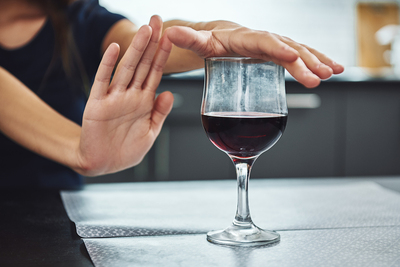
Understanding PAWS can help you manage triggers and stay on track.
Recovering addicts face many challenges on the path to sobriety. One of the most significant obstacles? Post-Acute Withdrawal Syndrome (PAWS.) The good news is that understanding PAWS can help support treatment and prevent relapse. Here’s a closer look at what all addicts and the people who love them should know about PAWS.
What Is PAWS?
Also known as chronic withdrawal, persistent post-use symptoms, protracted abstinence, and protracted withdrawal, PAWS is defined as “a set of impairments that can persist for weeks or months after the abstaining from a substance of abuse” by the Semel Institute for Neuroscience and Human Behavior.
People struggling with substance abuse typically experience two stages of withdrawal. The acute stage comes first. Lasting up to a few weeks, this stage comprises a spectrum of physical withdrawal symptoms.
PAWS is the second stage of withdrawal, during which addicts experience a different set of symptoms. While some physical symptoms may continue, additional emotional and psychological symptoms may occur as the chemical levels in the brain attempt to adjust to the new equilibrium.
PAWS begins after the first stage of acute alcohol withdrawal and can last anywhere between weeks and months. In some cases, it can last even longer. It’s important to remember that PAWS impacts everyone differently. Factors include age, gender, duration and amount of use, and state of health.
What Are PAWS Symptoms?
The most common PAWS symptoms include the following:
- Emotional outbursts and/or lack of emotion
- Difficulty dealing with stress
- Anxiety
- Low energy
- Difficulty sleeping and/or changes in sleep patterns and/or strange dreams
- Memory problems and/or difficulty learning new things
- Difficulty thinking clearly, making decisions and solving problems
- Delayed reflexes and trouble with balance
- Dizzy feelings
- Increased proneness to accidents
These symptoms can complicate the recovery process for addicts as well as for the members of their support system.

A strong support network is invaluable for coping with PAWS.
Managing PAWS
Unfortunately, while PAWS is well-known by addiction specialists, it’s lesser-known among the general public. One recovering alcoholic told Huffington Post of her experiences with PAWS, “I’m certain I suffer(ed) symptoms of PAWS. My sleep cycles were off, my emotions were all over the place; I would alternate between feeling good, really good, and certain, and then I couldn’t take all the soul searching one more minute.”
One of the best defenses against PAWS is understanding the symptoms and having a plan in place to cope with them when they occur. Strategies to combat PAWS include the following, according to UW Health:
- Identify family, friends, counselors, health care providers, and other people who support your desire for sobriety. These are the members of your support system. Staying in touch with them can help you stay on track.
- Identify anger, sadness, boredom, loneliness, and other emotional states that trigger you to want to use. Lean on your support system when these situations arise.
- Devise a daily routine which includes time for rest and relaxation. A routine sleep schedule, regular meals with plenty of healthy food, and exercise are all components that can help you minimize stress, maximize energy, and feel better.
- Don’t expect to feel better right away. Do things that bring you comfort, be patient with yourself, and give yourself time to heal.
If you’re part of a support system for someone going through PAWS, it’s critical to remember that they may need more help from you during this time.
Regardless of the stage of addiction or addiction recovery, access to the right information and treatment can make all the difference. St. Louis drug rehab has been an area leader in addiction and treatment recovery for more than 50 years. Call us to learn about admissions today.







